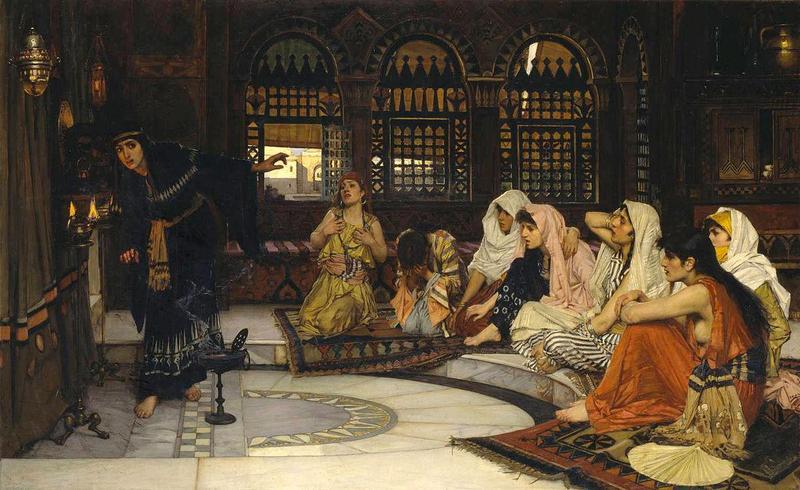The phenomenon of Glossolalia
The phenomenon of Glossolalia
Glossolalia is a term that refers to the ability or practice of talking in a language unfamiliar to the speaker. Glossolalia is generally utilized to denote speaking in a language which does not appear to exist or which is not known to humankind. Xenolalia is a sort of glossolalia where a person speaks a language which exists but is unknown to the speaker. Both are phenomena that happen while in a trance condition of bliss and union with a spirit(s).
In three unique dialogues by Plato, he makes reference to ecstatic speech that’s unintelligible, so does Virgil in the Aeneid. Glossolalia emerged in the Eleusinian, Dionysian, and Orphic Mystery Religions, and in the early cults of both Mithra and Osiris. Sibyls and Pythias were known too for their practice of glossolalia and ecstatic language while under trance induced states. Among other ecstatic and shamanistic practices we also find glossolalia.
George B. Cutten writes in An Ethnological Study of Glossalalia that, “Glossolalia is practiced among non-Christian religions: the Peyote cult among the North American Indians, the Haida Indians of the Pacific Northwest, Shamans in the Sudan, the Shango cult of the West Coast of Africa, the Shago cult in Trinidad, the Voodoo cult in Haiti, the Aborigines of South America and Australia, the Eskimos of the subarctic regions of North America and Asia, the Shamans in Greenland, the Dyaks of Borneo, the Zor cult of Ethiopia, the Siberian shamans, the Chaco Indians of South America, the Curanderos of the Andes, the Kinka in the African Sudan, the Thonga shamans of Africa, and the Tibetan monks.”
Glossolalia is known as a heavenly language, no matter which religious tradition you come from. It ranges from being the language of the Holy Spirit, angels, gods, or spirits while in a ecstatic state of trance. It has frequently been contrasted to barbarous words of magic traditions such as some of the words and phrases in The Greek Magical Papyri. Enochian, the language taught to John Dee by angels, is believed by many to be a recorded form of glossolalia.
L. Carlyle May of Harvard University writes in A Survey of Glossolalia and Related Phenomenon in Non-Christian Religions the following; “Guillaume states that in 853 B.C. four hundred prophets raved in ecstasy before the gate of Samaria, and in ancient Egypt necromancers uttered formulas, believed to be revelations from the gods, made up of foreign words and senseless noises. The more mysterious and incomprehensible these formulas were, the greater their power was thought to be. It is entirely probable, moreover, that sorcerers of India and China, contemporaneous to the Samaritans, spoke incoherently while divining, curing, and communing with the spirits”
Glossolalia also found its way to the early Mormon church, as Joseph Smith said that the “restored” (Mormon) church “believe in the gift of tongues, prophesy, revelation, visions, healing, interpretation of tongues”. Glossolalia also has a solid history in mediumship, Spiritism and Spiritualism. Allan Kardec, the creator of Spiritism (which was religious oriented compared to Spiritualism), pointed to glossolalia as proof of a soul’s presence. Allan Kardec’s work was foundational for a lot of the practices of contemporary mediumship.
In Psychology and the Occult Carl Jung also observed a trance medium and cites glossolalia as part of her ecstatic trance condition,“In reconstructing her somnambulistic ego we are entirely dependent on her subsequent statements, for in the first place the spontaneous utterances of the ego associated with the waking state are few and mostly disjointed, and in the second place many of the ecstasies pass off without pantomime and without speech, so that no conclusions about inner process can be drawn from external appearances.
Glossolalia, often referred to as "divine language," is a mysterious and fascinating phenomenon found across various religious and spiritual traditions. From ancient rituals to modern spiritual practices, glossolalia has been considered a means to connect with the spiritual realm. As you mentioned, Enochian, the language taught to John Dee by angels, is also believed to be a recorded form of glossolalia. This highlights the widespread and profound nature of this phenomenon throughout human history.
If you're interested in exploring more about tools that aid in learning or calculations, you might want to check out , a helpful tool that makes managing and calculating grades easy and efficient.
Glossolalia and xenolalia, speaking in tongues unknown, appear throughout history from Plato to ancient mystery religions. Imagine unlocking that skill in a simulated life! It's kind of like randomly landing a high-paying job in despite having zero related skills.
How does the interpretation of glossolalia differ across these groups? asks.
